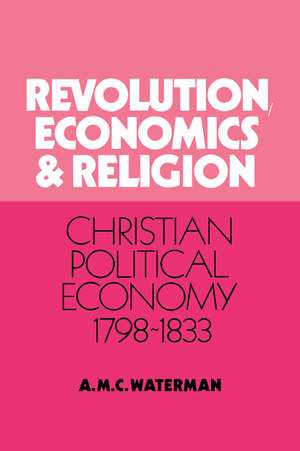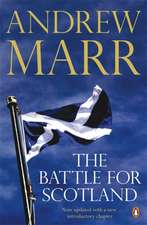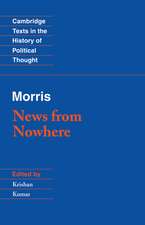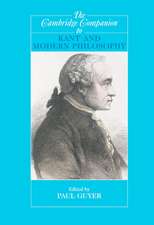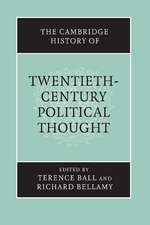Revolution, Economics and Religion: Christian Political Economy, 1798–1833
Autor A. M. C. Watermanen Limba Engleză Paperback – noi 2006
| Toate formatele și edițiile | Preț | Express |
|---|---|---|
| Paperback (1) | 289.01 lei 6-8 săpt. | |
| Cambridge University Press – noi 2006 | 289.01 lei 6-8 săpt. | |
| Hardback (1) | 682.42 lei 6-8 săpt. | |
| Cambridge University Press – 29 aug 1991 | 682.42 lei 6-8 săpt. |
Preț: 289.01 lei
Nou
Puncte Express: 434
Preț estimativ în valută:
55.30€ • 57.89$ • 45.76£
55.30€ • 57.89$ • 45.76£
Carte tipărită la comandă
Livrare economică 05-19 aprilie
Preluare comenzi: 021 569.72.76
Specificații
ISBN-13: 9780521030380
ISBN-10: 0521030382
Pagini: 328
Dimensiuni: 152 x 230 x 18 mm
Greutate: 0.48 kg
Editura: Cambridge University Press
Colecția Cambridge University Press
Locul publicării:Cambridge, United Kingdom
ISBN-10: 0521030382
Pagini: 328
Dimensiuni: 152 x 230 x 18 mm
Greutate: 0.48 kg
Editura: Cambridge University Press
Colecția Cambridge University Press
Locul publicării:Cambridge, United Kingdom
Cuprins
List of figures; Acknowledgements; Abbreviations; 1. Polemic, ideology and 'christian political economy'; 2. The first Essay on Population: political economy; 3. The first Essay on Population: theology; 4. The reconstruction of Malthusian theodicy: Paley and Sumner; 5. Oxford contributions: Copleston and Whately; 6. Chalmers and the establishment; 7. The end of christian political economy; Appendices; Bibliography; Index.
Recenzii
"In this carefully argued book, A.M.C. Waterman explores an important theme in late eighteenth- and early-nineteenth century British intellectual history." Catholic Historical Review
"Th[is]...volume...shows energy and scholarly rigor and is very stimulating." Albion
"...one of those books which exemplifies the eye for detail and depth of inquiry to which all scholars aspire. In the process of defending 19th Centural Christian Political Economy, he weaves an intricate historical tapestry of personalities, library collections, correspondence and institutional rivalries. Most significantly, he brings to the forefront significant insights into the interaction between the development of economic theory, theology, and political philosophy at the onset of the 19th century." Roger Johnson, Bulletin of the Association of Christian Economists
"This is a clearly structured and well-written book on the sort of interdisciplinary issue that we all pay homage to but seldom engage in....There is a great deal of very valuable material here: the delineation of the common ground between Godwin and Malthus; the extent to which Godwin adumbrates Marxian thought; the connection between Abraham Tucker and Malthus; the emphasis on theology and the importance of doctrine to those intended for the Church; and the importance of Paley at Cambridge. Much can be learned by paying attention to what Waterman has to say on these issues." Salim Rashid, History of Political Economy
"Th[is]...volume...shows energy and scholarly rigor and is very stimulating." Albion
"...one of those books which exemplifies the eye for detail and depth of inquiry to which all scholars aspire. In the process of defending 19th Centural Christian Political Economy, he weaves an intricate historical tapestry of personalities, library collections, correspondence and institutional rivalries. Most significantly, he brings to the forefront significant insights into the interaction between the development of economic theory, theology, and political philosophy at the onset of the 19th century." Roger Johnson, Bulletin of the Association of Christian Economists
"This is a clearly structured and well-written book on the sort of interdisciplinary issue that we all pay homage to but seldom engage in....There is a great deal of very valuable material here: the delineation of the common ground between Godwin and Malthus; the extent to which Godwin adumbrates Marxian thought; the connection between Abraham Tucker and Malthus; the emphasis on theology and the importance of doctrine to those intended for the Church; and the importance of Paley at Cambridge. Much can be learned by paying attention to what Waterman has to say on these issues." Salim Rashid, History of Political Economy
Descriere
Professor Waterman analyses the story of the 'intellectual repulse of revolution', and describes the ideological alliance of political economy and Christian theology after 1798.
